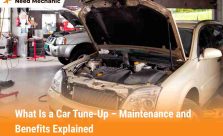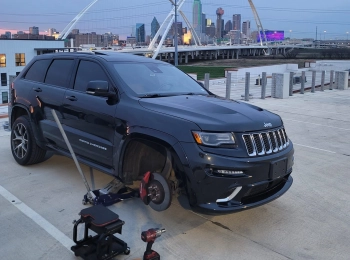The benefits of an electric car include saving money on fuel, lowering maintenance costs, reducing air pollution, and providing a quiet, smooth driving experience. They also offer the convenience of home charging, long-term financial advantages, and healthier communities with cleaner air.
Electric cars are becoming a practical choice for everyday drivers. Rising fuel prices, advancements in charging stations, and improved technology make them more affordable and reliable than ever. This guide explains the key advantages of owning an electric car and how it can make life easier, cleaner, and more cost-effective.
Table of Contents
- Lower Fuel Costs and Day-to-Day Savings
- Fewer Maintenance Worries
- Environmental Benefits That Impact Everyone
- Convenience of Charging at Home
- Quiet and Smooth Driving Experience
- Long-Term Financial Benefits
- Supporting Local Energy Independence
- More Public Charging Stations Every Year
- Conclusion: Why Electric Cars Are Worth Considering
- FAQs
Lower Fuel Costs and Day-to-Day Savings
One of the most noticeable benefits of an electric car is the savings on fuel. Charging an EV at home is far more affordable than filling up a gas tank, and those savings add up quickly. In most areas, the cost of electricity per mile is only a fraction of what you would normally pay for gasoline, which means drivers can cut their monthly transportation costs dramatically.
Another advantage is the stability of energy costs. Gas prices are known to spike without warning, creating stress for anyone who drives frequently. Electric cars reduce this worry because electricity rates are generally more stable and predictable. Many utility companies also offer discounted off-peak charging rates at night, giving drivers the option to save even more when they plug in while they sleep.
For the average driver who spends around $200 each month on fuel, switching to an electric vehicle can lower that expense to about $50–$60 with regular home charging. Over the course of a year, those savings can amount to well over a thousand dollars, freeing up money for other important household expenses.
Fewer Maintenance Worries
Another key benefit of owning an electric car is lower maintenance. Traditional vehicles with gasoline engines have hundreds of moving parts such as belts, spark plugs, oil filters, and exhaust systems. All of these components can wear out over time and eventually need replacing.
Electric vehicles do not rely on these parts. Instead, they use electric motors with fewer moving components, which makes them simpler and less costly to maintain.
Here’s what that means for you:
- No oil changes
- No exhaust system repairs
- Fewer brake replacements thanks to regenerative braking
- Less frequent trips to the mechanic
You will still need to rotate tires and replace windshield wipers, but the expensive repairs that come with traditional engines do not apply to electric cars. This makes ownership easier, more predictable, and more affordable over the long run.
Environmental Benefits That Impact Everyone
For many families, one of the most common questions is whether electric cars are better for the environment. The answer is yes. EVs have a smaller carbon footprint compared to gas vehicles.
Zero tailpipe emissions mean electric cars do not release harmful exhaust fumes into the air. This results in cleaner air in cities and neighborhoods. Lower greenhouse gas output is another advantage. Even if the electricity used to charge your car comes partly from fossil fuels, an electric vehicle typically produces fewer emissions overall than a gas-powered car.
Electric cars also support the growth of renewable energy. As more solar and wind power are added to the grid, charging becomes cleaner each year, making the environmental benefits even stronger.
Cleaner air and reduced emissions are not just about global climate goals. They directly affect daily health. Less smog means easier breathing, especially for children, seniors, and people with asthma.
Convenience of Charging at Home
One of the underrated benefits is convenience. Instead of waiting in line at the gas station, you can simply plug in your car at night.
- Start every morning with a full “tank.”
- Save time by skipping gas station detours.
- Install a Level 2 home charger for faster charging in your driveway or garage.
You just plug in like you would a phone. For longer trips, public charging stations are expanding rapidly along highways and in city centers.
Quiet and Smooth Driving Experience
Beyond cost and convenience, electric cars offer a completely different driving feel. Many new EV owners are surprised at how enjoyable it is.
- Silent engines: No loud revving or vibration, just a quiet, peaceful ride.
- Instant acceleration: Electric motors deliver power immediately, so you get a quick takeoff without hesitation.
- Smooth handling: Without gear shifts, the ride feels seamless and controlled.
Even affordable EVs feel modern and high-tech on the road.
Long-Term Financial Benefits
At first glance, electric cars sometimes cost more to buy than gas vehicles. But when you add up fuel savings, lower maintenance, and tax incentives, the long-term cost often works out better.
- Tax credits and rebates: Many governments offer financial incentives to lower the purchase price.
- Increased resale value: As demand for EVs grows, used electric cars are becoming more valuable.
- Fewer unexpected repair bills: Electric cars avoid costly engine and transmission repairs.
Supporting Local Energy Independence
Another benefit is reducing reliance on imported oil. By charging with electricity from local power plants or even your own rooftop solar panels, you’re helping your community rely less on global oil markets.
- More stable energy costs locally
- Supports renewable energy jobs
- Keeps money in local economies rather than sending it overseas
More Public Charging Stations Every Year
A common hesitation is “What if I run out of battery?” But charging networks are expanding quickly. Across highways, shopping centers, workplaces, and neighborhoods, new charging stations are being added every month.
- Fast charging hubs can charge most EVs to 80% in 20–30 minutes.
- Apps and navigation systems help you find charging stations easily.
- Workplace and retail charging make it easy to top up while you shop or work.
As the infrastructure improves, “range anxiety” is becoming less of a problem.
Conclusion: Why Electric Cars Are Worth Considering
The benefits of an electric car reach far beyond saving money on gas. They include reduced maintenance costs, a cleaner environment, a quieter and smoother driving experience, and the long-term peace of mind that comes with stable and predictable energy use.
Electric vehicles make daily life more affordable, more convenient, and more sustainable for both individuals and families.
Choosing an electric vehicle is not only about improving your own driving experience. It is also an investment in your future, in your community, and in creating a healthier world for the generations that will come after us.
FAQs
Do electric cars really save money?
Yes. While the upfront cost may be higher, savings on fuel, maintenance, and possible tax incentives make EVs more affordable in the long run.
How long does it take to charge?
With a Level 2 charger at home, most cars fully charge overnight. Fast chargers on the road can add hundreds of miles in less than an hour.
How long do electric car batteries last?
Most EV batteries are designed to last 10–15 years, and many come with long warranties.
Are electric cars safe?
Yes. They go through the same crash testing as other cars, and many include advanced safety features.
Can I take long trips with an electric car?
Yes. Planning is easier now with expanded charging stations across highways.
Are there enough charging stations in my area?
Charging networks are growing fast, and most cities now have multiple public chargers. Apps can help you check availability.
Do electric cars work in cold weather?
Yes, though range may drop slightly in extreme cold. Pre-heating the battery and cabin before driving helps maintain efficiency.












Leave a Reply